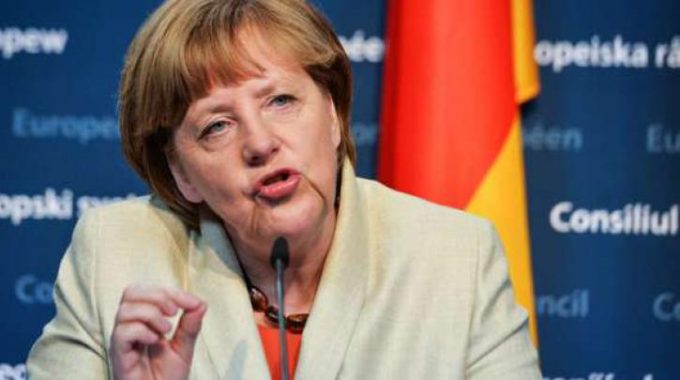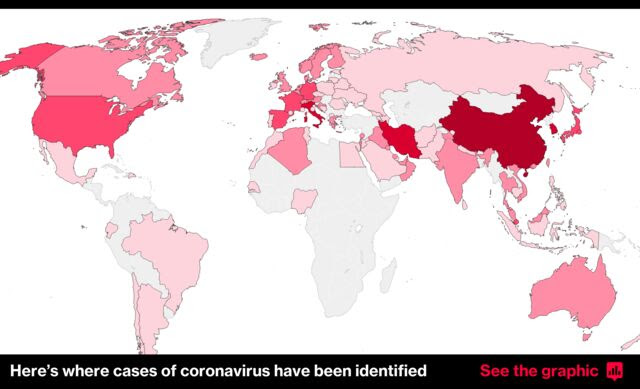The euro slid, as did German and Italian bonds, on the prospect that the ECB may soon be prevented from exercising the full might of its asset-purchase program.
Germany’s top judges gave the ECB three months to fix its 2.7 trillion-euro ($2.95 trillion) asset purchase program after a seven-to-one ruling stating that some parts of the quantitative-easing program aren’t backed by European Union treaties.
“It’s my understanding that it doesn’t apply to PEPP, but if this proves a serious challenge to PSPP, the same argument could be made in courts against PEPP,” said Antoine Bouvet, a senior rates strategist at ING Groep NV. “This is not the sort of doubt you want to instill in the market.”
It prompted traders to add to bets the euro may fall further. The Pandemic Emergency Purchase Programme (PEPP) is a 750 billion euro scheme that runs out at the end of the year. The ECB started the public sector purchase programme in 2015, which buys assets on the secondary market.
“It looks like the euro-zone is shooting itself in the foot,” said Lee Hardman, a currency analyst at MUFG who sees the euro falling through March lows if this isn’t resolved in a market-friendly manner. “The risk of another euro-zonedebt crisis would be significantly higher without ongoing support from the ECB. Those are the risks the market is weighing up in light of today’s decision.”
The currency fell as much as 0.7% to $1.0826. The yield on Italy’s 10-year bonds climbed as much as 11 basis points, widening its spread over bunds, a gauge of risk, to 241.
Here’s what strategists said:
Nomura International (Potentially big)
- “What matters in FX is that it causes uncertainty and with it we’ll likely see this move in EUR continue,” says Jordan Rochester, a Group-of-10 FX strategist
- “The Bundesbank is in a rough place. If in three-months’ time the court is not convinced, clearly PSPP could enter a transitional period and they buy less bunds”
- Market is selling off “due to what this ‘could’ mean for PEPP – not today, but down the line (months/more likely years) – to comply with the German monetary prohibition, issuer limits and capital keys are essential to the courts view”
- In FX, “we remain short and look for 1.06 in the month to come,” referring to euro-dollar
Danske Bank (GCC barks, not bites)
- “In practice, this means the purchase programmes can continue – both APP and PEPP, but ECB needs to ensure that this is temporary,” says strategist Piet Christiansen
- He adds that “‘PEPP is not up for trial – hence no impact on markets”
- “I don’t think we should read too much” into the three-month deadline, he added, noting other central banks would still be able to buy bonds
Commerzbank (Edge taken out of ‘whatever it takes’)
- “The ECB now has to do some due diligence on ‘proportionality’ over next three months together with the Bundesbank and the Bundestag — but this should pose no problem,” says head of rates strategy Michael Leister
- “The GCC is taking the edge out of “‘whatever it takes’”
- “Even for bunds it’s not positive to have the ECB potentially constrained”
- “It increases pressure on politicians to provide a common backstop if the ECB is (potentially) constrained”
ING (Not the sort of doubt you want)
- “The knee-jerk market reaction should be a sell off in both core (e.g. bund) and peripheral (e.g. BTP) assets,” says Bouvet
- “But should this prove a more serious challenge to the ECB’s ability to carry out QE, then portfolio reallocation flow away from risk assets should keep German yields low, and widen spreads to other issuers”
Credit Agricole (It’s all bad for the euro)
- “While we doubt that the decision will stop the ECB from easing further, the monetary policy process could become more cumbersome,” says Valentin Marinov, head of G-10 FX research
- “It underscores the difficulty faced by the euro zone governments in their fight against Covid-19”
- “This much warrants cautiousness on the EUR outlook from here”
- “As the news keeps coming, it’s all bad for the euro I am afraid”




















 Charles Michel
Charles Michel

